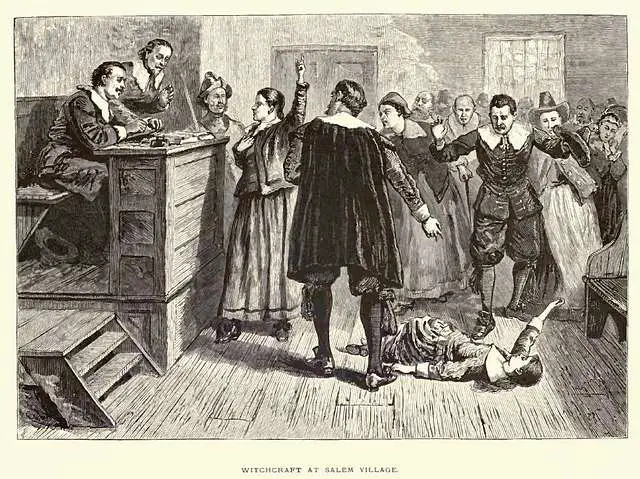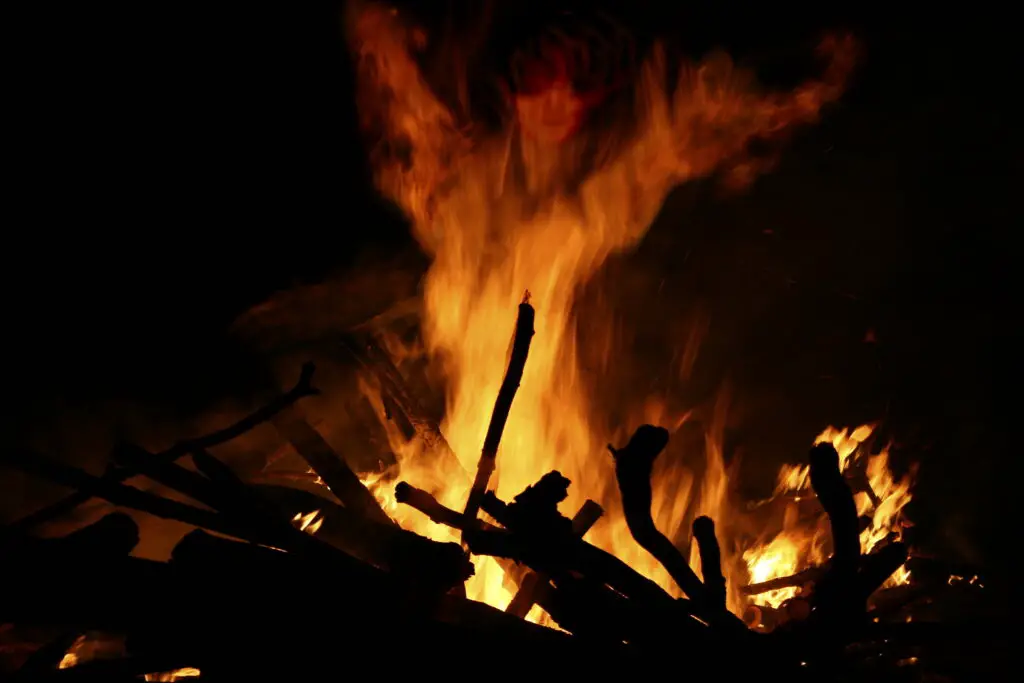1. Don’t Sweep at Night in Old China

In certain parts of ancient China, sweeping your home after the sun went down wasn’t just frowned upon, it was illegal. Authorities believed sweeping at night would drive away wealth and luck, and laws were sometimes passed to enforce this superstition. It might sound strange now, but in a culture where fortune and prosperity were tied to household practices, lawmakers took no chances.
This law wasn’t about cleanliness but about spiritual well-being. By preventing people from sweeping, leaders thought they were protecting families from bad luck. It was a way of ensuring households stayed prosperous, at least in theory. Today, it’s more of a cultural caution passed down through tradition rather than an enforced rule.
2. England’s Ban on Eating Bread on Certain Days

During medieval times, the English crown sometimes restricted bread consumption on specific days. The reasoning wasn’t about health or rationing but about spiritual superstition. They believed eating bread on unlucky days would bring divine disfavor. These rules were connected to religious calendars and superstitions tied to fasting or penance.
People could be fined for breaking these food laws, which shows how seriously the authorities took them. Bread was a staple, so banning it even temporarily caused disruptions in daily life. It was less about nutrition and more about keeping people spiritually “clean.” Today, it feels like a strange blend of politics and superstition wrapped into everyday eating.
3. No Pointy Shoes in 15th-Century England

Fashion wasn’t always just a matter of style. In the 1400s, pointy shoes became such a craze that the English Parliament banned them, partly because of superstitions. Some religious leaders claimed the long tips resembled devil’s horns and invited evil. Lawmakers used this as justification to curb what they saw as an immoral fashion trend.
Breaking the shoe law could mean fines or even public shaming. It’s a reminder of how clothing often carried deeper meanings in earlier centuries. People truly believed footwear could influence their soul’s safety. Looking back, it feels almost humorous that shoes could stir up so much fear.
4. Ban on Whistling Underground in Wales

In 19th-century Wales, coal miners were forbidden from whistling while underground. While it was partly practical—whistling could mimic signals used in the mines—the deeper reason was superstition. Miners believed whistling would “wake up” evil spirits or anger the mine’s guardian beings. Laws and company rules enforced silence to keep everyone safe.
The belief tied into older Celtic traditions where underground spaces were thought to belong to spirits. Even as mining became industrialized, the old superstitions held power. It was a mix of cultural fear and practical caution, but it shows how deeply superstition shaped workplace rules.
5. No Wearing Red on Certain Days in Ancient Rome

In ancient Rome, laws once prohibited wearing red clothing on unlucky days. The Romans were incredibly superstitious and tied colors to omens. Red was believed to attract Mars, the god of war, and could stir violence or bad luck if worn on the wrong dates. The law was enforced by religious authorities to keep society “in balance.”
This meant fashion choices weren’t just personal—they were bound by the calendar. Wearing the wrong shade on a forbidden day could mark you as careless or even dangerous. Today, the idea of a government telling people when they can wear red seems absurd, but back then it was seen as keeping peace.
6. No Sleeping Facing North in Old Japan

In historical Japan, certain local laws discouraged people from sleeping with their heads pointed north. This direction was associated with death because corpses were traditionally laid out that way. Officials believed aligning yourself this way while alive invited misfortune.
Though not harshly enforced, the warnings carried weight, and communities treated them seriously. People rearranged sleeping spaces to avoid punishment and, more importantly, bad luck. It shows how laws sometimes existed more to reinforce cultural fears than to police hard behavior.
7. Witch Marks in Colonial America

In some New England colonies, laws required homeowners to carve protective symbols on their houses. These were called “witch marks,” and they were meant to keep witches and evil spirits out. The law wasn’t about aesthetics—it was about survival against the supernatural.
Failure to mark your home could leave you suspected of harboring evil or not protecting your community. These laws grew out of the hysteria around witchcraft and the genuine fear of curses. It’s a strange reminder of how seriously people once treated things we now see as folklore.
8. Iceland’s Ban on Owning Cats in the Middle Ages

During medieval times, Iceland had laws against keeping cats, and superstition played a major role. Cats were thought to be linked to witchcraft and the devil. Lawmakers, worried about these associations, banned them outright.
The law also had practical benefits, since Iceland’s fragile bird population was threatened by cats. But the real push came from fear of dark magic. In hindsight, it’s a mix of ecological foresight and misplaced superstition. It left Iceland without house cats for centuries.
9. France’s Ban on Using Certain Days for Marriages

In medieval France, laws restricted marriages on certain “unlucky” dates. Days connected to eclipses or odd astrological alignments were forbidden. Leaders feared that couples married then would bring disaster to their families or even the community.
Breaking this law could mean annulments or community disapproval. People often had to wait months until an astrologically “safe” date arrived. It tied life’s most personal choices directly to cosmic superstitions. Weddings weren’t just about love but about appeasing the stars.
10. No Knocking on Doors at Night in Old Russia

In old Russia, laws in some regions banned knocking on doors after dark. The superstition was that knocking summoned spirits or the souls of the dead. Officials enforced the law to prevent community panic and supposed hauntings.
It meant visitors at night had to find another way to announce themselves. Some communities even made rules about calling names instead of knocking. It’s a simple rule rooted in deep fears of the unseen. The law reminds us how much daily life was shaped by ideas of the spirit world.
11. Spain’s Ban on Planting Basil Near Homes

In early modern Spain, laws discouraged planting basil right next to houses. Basil was thought to attract evil spirits and bring illness. Officials viewed it as dangerous for community health and spiritual balance.
Households who ignored this could face fines or community disapproval. The herb we now associate with pasta and salads was once feared as a curse magnet. It’s a perfect example of how superstition turned an everyday plant into a legal concern.
12. Don’t Build Houses on Certain Days in Ancient India

In parts of ancient India, laws tied to astrology prevented building or moving into houses on unlucky dates. Leaders relied on astrologers to declare when construction could start. Building on the wrong day was believed to invite death or ruin.
Breaking the rule could result in tearing down the house or facing social penalties. It wasn’t just advice—it was codified into law in some regions. This shows how deeply astrology influenced not just personal life but civic planning.
13. Italy’s Ban on Owls in Towns

In medieval Italy, some towns passed laws banning owls from being kept or even tolerated inside city walls. The owl was seen as a harbinger of death, and its call was thought to predict misfortune. Community leaders treated the bird as a bad omen that had to be kept away.
Punishments ranged from fines to more extreme measures. Townspeople might kill or chase off owls to stay in compliance. It’s another case where superstition shaped how people interacted with nature. Instead of appreciating owls as pest control, they were cast as villains.
14. Scotland’s Ban on Halloween Fires

In earlier centuries, Scotland had local laws against lighting bonfires on Halloween night. While bonfires had been part of ancient Celtic tradition, some leaders believed the fires summoned spirits or opened doors to the otherworld. Officials tried to suppress the practice by enforcing bans.
People who lit fires anyway risked fines or punishments. Of course, many communities ignored the rules and kept the tradition alive in secret. The bans show how superstition could sometimes be turned on its head—something once protective was suddenly seen as dangerous. It’s a reminder of how shifting beliefs shaped even holiday traditions.
